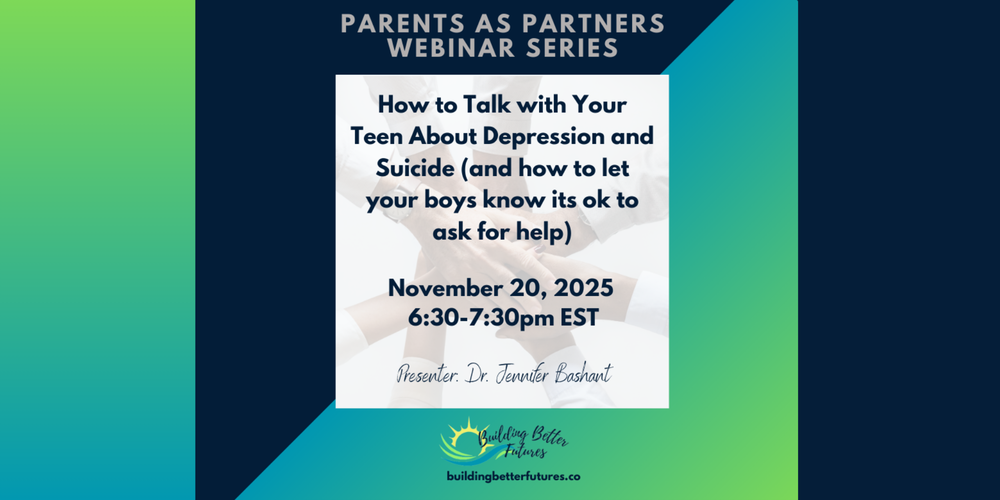The teenage years are defined by changes, sometimes dramatic changes, in behavior. These are often difficult years for families, even when mental health challenges are not present. So, how do you know what are considered normal changes, and when the changes in mood, isolating behavior and loss of interest in certain activities is clinical depression?
Dr. Jennifer Bashant will offer a virtual workshop to discuss “How to Talk with Your Teen About Depression and Suicide (and how to let your boys know it’s OK to ask for help!),” at 6:30 p.m. Thursday, Nov. 20.
During this webinar, participants will look at the symptoms of depression and warning signs for suicide and learn ways to support teens and get them professional help if needed. It can be overwhelming and difficult to find a therapist who is also accepting new patients, so the webinar will also discuss tips for finding a therapist who will be a good fit.
“The teen years can be a rollercoaster — full of change, growth and emotion,” said Christine Delaney, Queensbury Union Free School District’s director of Social and Emotional Learning and UPK. “It can be hard for parents and caregivers to know when to give space and when to step in. Learning how to talk with your teen in a way that feels safe and supportive and knowing where to turn for help if things get tough, can really help them thrive. Supporting their emotional health matters — and you don’t have to do it on your own.”
This webinar is for families with teen students. To register in advance for this webinar, go to: https://us06web.zoom.us/webinar/register/WN_HdyO9vL3TkmGZWbwPFRt5A#/registration
After registering, you will receive a confirmation email containing information about
joining the webinar. The session will be recorded and available after the live webinar for those who signed up in advance.
Bashant, founder of Building Better Futures, LLC, is an educational consultant, motivational speaker and therapist with the mission to provide educators with evidence-based strategies to reduce challenging behavior in the classroom and create a positive impact on learning.

